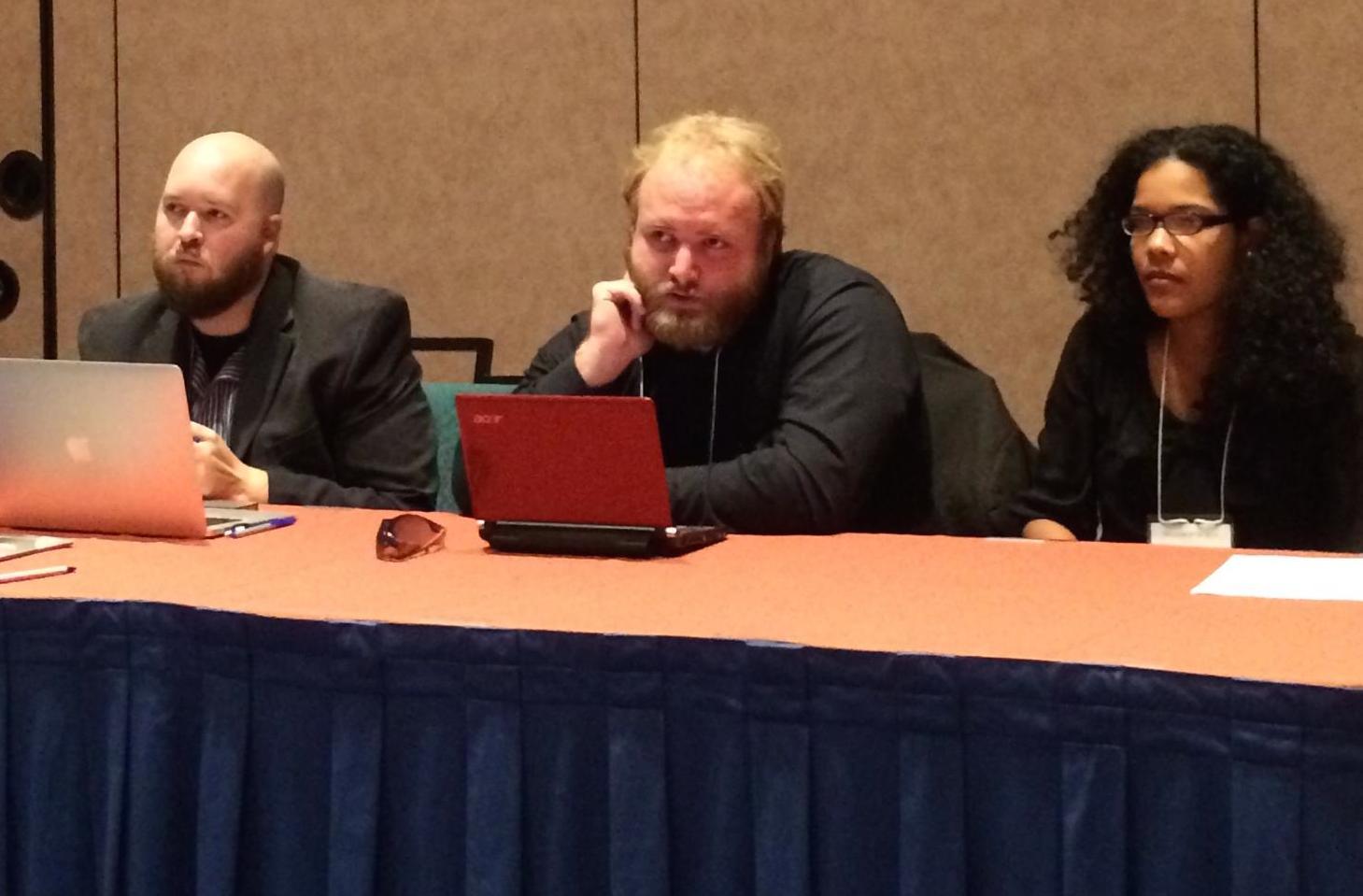As part of our 2014 year end review, for the next few weekends, we’ll be revisiting sessions from the 2014 International Writing Centers conference in Florida and exploring some of the conversations writing center scholars are having that explore digital rhetoric and digital composition’s relationship to writing center work. Featured in this post is a review of a session entitled, “Defining Differences and Achieving Consensus: What is an Online Writing Center?” Writing center professionals from The University of Mississippi examine issues of definition and practice in online writing center work. Brad Campbell, a writing center director at The University of Mississippi, is joined by assistant director Ben Lowery and peer tutor Taylor Brack in this roundtable discussion.

Campbell questions how we define an online writing center. Is it an online presence for a face to face center? A virtual writing consultant/client interface? A digital writing studio that stands independent of a brick and mortar center? In writing center work, we are constantly defining and redefining what we are and what we do, and to meet the different needs of our institutions, we are thoughtful and flexible in how we conceive of the online writing center space. For Campbell’s center, the online writing center space was created to meet a geographical need. Campbell’s online writing center is a synchronous chat and whiteboard space tied to the appointment calendar. Ole Miss has campuses spread across the state of Mississippi, and the online center was created to allow students who, for reasons of geography or time, can’t make it to the face to face center. Though the platform for the online sessions has not changed, over the past three years, they’ve made some interesting discoveries about who uses the online space and why.
Lowery builds on Campbell’s thoughts with a discussion of the affordances and constraints of online sessions. As part of his work assisting in training writing consultants, questions of how much an online session should mirror a face to face session arose. At first, they attempted to closely mimic strategies used in face to face sessions, but found that, while video can be useful, “when it becomes the default, you run into problems with technological issues. Peer tutor Taylor Brack discusses strategies for more effective online consultations, bringing in examples and transcripts to illustrate her points.
During the last fifteen minutes of the session, Campbell poses questions to the audience that challenge writing center professionals to consider how they conceptualize writing centers. I will leave this post with his questions and invite you, DRC readers, to reply in the comments:
- Do you currently offer online consultations? Why?
- Is there a consensus about how closely online practices should mirror face to face practices?
- What are the advantages of embracing fundamental differences between online and face to face?
